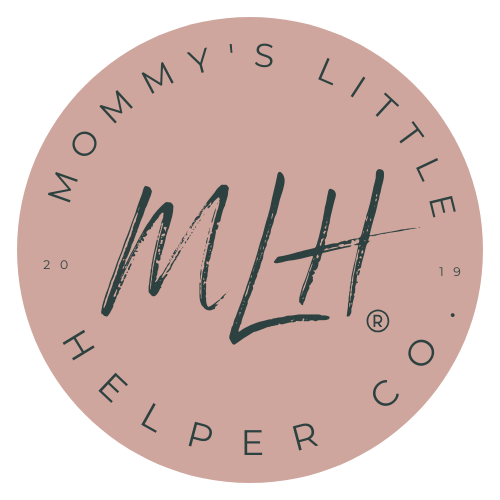
Why Toddlers Say “No” to Everything And How to Respond
If you’ve ever asked your toddler to put on their shoes, eat their veggies, or wash their hands and got a firm “NO!” in return, you’re definitely not alone. I’ve been there too, sometimes more times than I’d like to admit. It can be exhausting, even frustrating, especially when you're just trying to get everyone out the door or make dinner after a long workday.
So, why do toddlers say “no” to almost everything, even the simple stuff? And more importantly, how do we respond without losing our cool?
Let’s dive into what’s really going on and how we can shift these moments from power struggles into learning opportunities.
Why “No” is Normal for Toddlers
Between the ages of 1.5 and 3, kids start discovering their independence. They’re learning they’re their own little person, separate from mom and dad. Saying “no” is one of the first real ways they can express that independence. It’s not personal, it’s developmental.
Think of it this way: your toddler isn’t trying to make your life harder (though it can feel like it!). They’re simply trying to assert themselves in a world that still feels big and confusing.
This stage is often called the “autonomy vs. shame and doubt” phase, according to child development experts. Kids want to do things “by myself,” but they still need lots of help. It’s a delicate balance.
Common Reasons Behind the “No!”
Here are a few reasons why your toddler might be refusing things, even when they usually enjoy them:
-
They want control. They’re trying to make their own choices.
-
They’re overwhelmed. Too many decisions or a big change can trigger resistance.
-
They’re testing limits. Toddlers are wired to figure out where the boundaries are.
-
They’re tired, hungry, or overstimulated. Just like us, they have off days.
Understanding what’s behind the “no” helps us respond with empathy rather than frustration.
How to Respond Without Losing Your Cool
As parents, our job isn’t to avoid every “no,” but to handle them in a way that builds trust and teaches our little ones how to express themselves better.
Here are a few gentle and effective ways to respond:
1. Offer Choices Instead of Commands
Instead of saying, “Put on your jacket,” try, “Do you want your blue jacket or your yellow one today?” This gives them a sense of control while still getting the outcome you need.
2. Make It a Team Effort
Toddlers love being involved in grown-up tasks. That’s why having a kitchen tower in your home can make such a difference. It’s more than just a step stool, it invites your little helper into your world.
When your toddler is in their kitchen tower next to you, helping stir, wash veggies, or just watch what’s going on, they feel capable and included. That sense of responsibility can help reduce the need to say “no” because they feel valued and heard.
3. Use “When…Then” Phrases
Instead of threats or bribes, try “when…then” statements.
For example:
“When your toys are cleaned up, then we can go outside.”
This sets a clear, predictable structure without pressure.
4. Validate Their Feelings
Sometimes, all your toddler needs is to be heard. Try saying:
“I know you don’t want to stop playing. It’s hard when fun has to end.”
You’re not giving in, you’re showing that their feelings matter.
5. Stay Consistent and Calm
Easier said than done, I know! But toddlers feel safest when their world is predictable. Stick to routines, and try to stay calm, even when they’re anything but.
It’s okay to take a breath, step away for a second, and remind yourself that this is just a phase.
Encouraging Independence in Positive Ways
One of the biggest things I’ve learned as a mom is how powerful it is to shift focus from the struggle to the solution. Our little ones crave independence, but they also crave connection.
When your little helper is engaged in something meaningful, there are fewer “no’s” and more “yes, I can!” moments.
Further Reading: How to Encourage Independence in Toddlers for Busy Parents
It’s Not About Perfection
Parenting a toddler is messy, beautiful, and often noisy. You’re not doing it wrong if your child says “no” a hundred times a day. In fact, you’re probably doing it exactly right.
By understanding the “why” behind the “no,” offering empathy, and giving them ways to feel independent, you’ll start to see fewer battles and more cooperation.
At Mommy’s Little Helper Co., we design toddler furniture that builds confidence and supports everyday parenting. Looking for a practical way to nurture your little helper’s independence? Explore our collection and find the perfect piece for your home.




